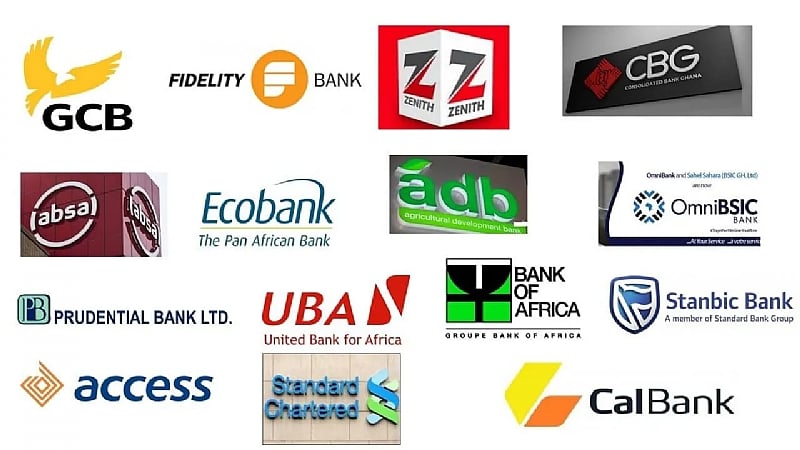Paragraph 1: The Shifting Landscape of Ghana’s Loan Market
Ghana’s loan market is experiencing a significant shift, with domestically-owned banks gaining ground on their foreign counterparts in terms of loan disbursements. Data from the Bank of Ghana’s Collateral Registry Quarterly Brief for the fourth quarter of 2024 reveals a notable decline in the share of secured loans granted by foreign-owned banks, while locally-owned banks recorded a substantial increase. This trend marks a departure from the historical dominance of foreign banks in Ghana’s lending sector and suggests a growing competitiveness among domestic financial institutions. The shift has the potential to reshape the landscape of Ghana’s financial system, impacting everything from interest rates and customer service to the country’s overall economic resilience.
Paragraph 2: A Closer Look at the Numbers
The Bank of Ghana’s report provides concrete evidence of this evolving trend. In the fourth quarter of 2023, foreign-owned banks controlled a commanding 74.6% share of secured loan disbursements. Just one year later, in Q4 2024, that figure plummeted to 51.5%. Conversely, domestically-owned banks saw their share nearly double, rising from a modest 25.4% in Q4 2023 to a substantial 48.5% in Q4 2024. Though foreign banks still maintain a slight edge in overall loan disbursements, the rapid growth of local banks’ market share signals a potential tipping point in the near future. This dynamic change warrants further investigation into the underlying factors driving this shift.
Paragraph 3: Potential Implications for Ghana’s Financial System
The implications of this trend are far-reaching. Should domestically-owned banks continue to gain market share and eventually surpass foreign banks, Ghana’s financial system could become less susceptible to external shocks. A greater reliance on domestic financing would insulate the country from fluctuations in global financial markets and reduce its dependence on foreign capital. Additionally, increased competition between local and foreign banks could spur innovation, improved customer service, and potentially lower interest rates, benefitting borrowers and businesses alike. The shift also signifies the growing strength and maturity of Ghana’s domestic financial sector.
Paragraph 4: Unraveling the Driving Forces Behind the Shift
The central question surrounding this market shift is the underlying cause. Are foreign-owned banks strategically limiting their loan disbursements, or are local banks simply becoming more competitive? Several factors could be contributing to the growth of local banks. They may be offering more attractive lending terms, personalized services, and financial solutions tailored to the specific needs of local businesses and individuals. Increased confidence in domestic banks among individuals and businesses could also be playing a crucial role. Further research is needed to pinpoint the specific factors at play and understand the motivations behind the changing behavior of both foreign and domestic banks.
Paragraph 5: Benefits of a Stronger Domestic Banking Sector
The continued growth of domestically-owned banks holds significant promise for Ghana’s economy. A robust local banking sector can enhance access to credit for individuals and businesses, particularly small and medium-sized enterprises (SMEs) that often face difficulty securing loans from larger international banks. Increased lending to SMEs can fuel economic growth, job creation, and overall development. Furthermore, a more diversified financial landscape can strengthen Ghana’s economic resilience, making it less vulnerable to external shocks and better equipped to withstand economic downturns.
Paragraph 6: The Path Forward – Sustaining the Momentum
Sustaining this positive trend requires ongoing efforts to strengthen the regulatory framework governing Ghana’s financial sector, promote transparency and accountability within the banking industry, and build public confidence in domestic financial institutions. Encouraging innovation and competition within the sector will be crucial for driving continued growth and ensuring that the needs of borrowers are met. As Ghana’s financial landscape continues to evolve, it will be essential to monitor the progress of domestically-owned banks, analyze the impact of their growing market share, and adapt policies to support a stable and thriving financial system. The future of Ghana’s financial sector rests on the ability of both local and foreign banks to collaborate and compete effectively, ultimately benefiting the Ghanaian economy as a whole.


